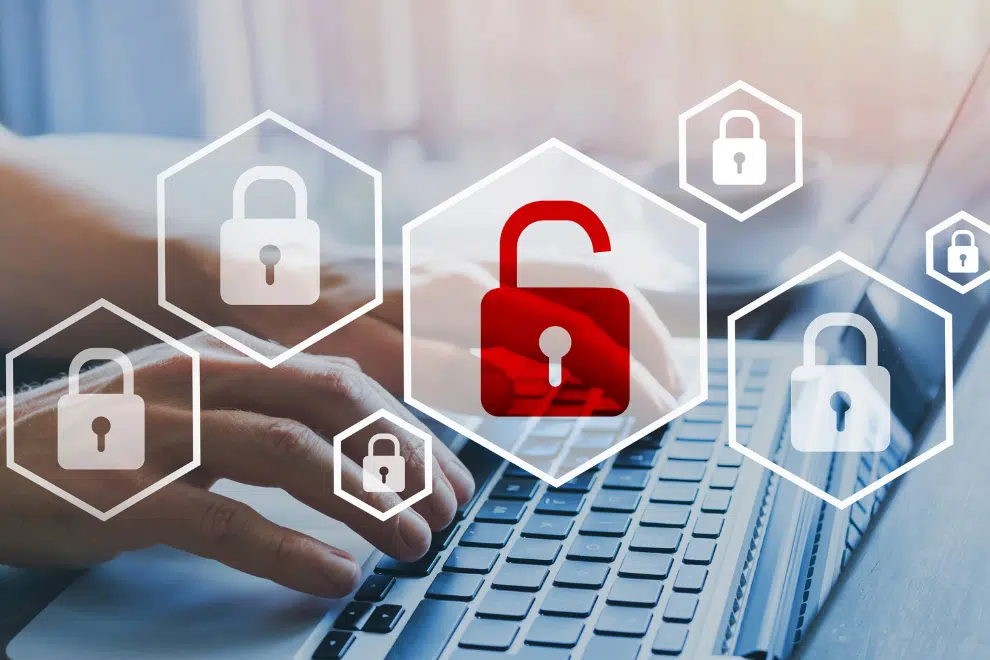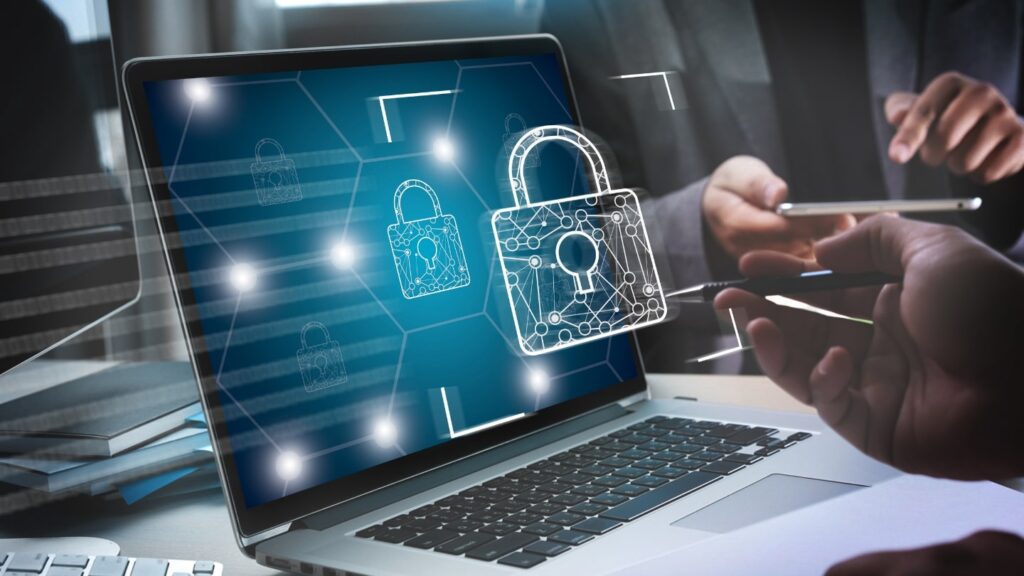
In today’s digital age, information technology (IT) security is paramount for all businesses, regardless of size. However, small and medium enterprises (SMEs) often overlook the significance of robust IT security measures, leaving them vulnerable to cyber threats. This blog will explore the importance of IT security services for SMEs, their potential risks, and the essential strategies to safeguard their operations.
1. Introduction to IT Security for SMEs
IT security encompasses the practices, tools, and measures to protect electronic data and systems from unauthorized access, attacks, and damage. It includes various aspects such as network security, data protection, and incident response.
2. Why IT Security is Crucial for SMEs
While large corporations often have dedicated resources to manage IT security, SMEs may need more expertise and budget. However, the importance of IT security for SMEs must be considered. Cybercriminals frequently target smaller businesses due to perceived vulnerabilities, making it critical for SMEs to invest in robust IT security measures.
Common Cyber Threats Facing SMEs
· Phishing Attacks
Phishing attacks involve fraudulent emails or messages that trick recipients into revealing sensitive information such as passwords or financial details. SMEs are particularly vulnerable to phishing because employees may not be as aware of the risks as those in larger organizations.
· Ransomware
Ransomware is malware that encrypts a victim’s data and demands a ransom for the decryption key. SMEs may not have comprehensive backup strategies, making them prime targets for ransomware attacks.
· Malware
Malware, or malicious software, can infect systems and steal, damage, or delete data. SMEs often use third-party software that may not have rigorous security measures, increasing the risk of malware infections.
· Insider Threats
Insider threats involve employees or contractors who intentionally or unintentionally cause harm to the organization’s IT infrastructure. SMEs may have less stringent access controls, making it easier for insiders to exploit vulnerabilities.
· Data Breaches
Data breaches occur when sensitive information is accessed without authorization. SMEs often handle valuable customer data and intellectual property, making them attractive targets for cybercriminals seeking to exploit this information.
The Impact of Cyber Threats on SMEs
· Financial Losses
Cyberattacks can lead to significant financial losses for SMEs. Costs may include ransom payments, legal fees, regulatory fines, and the expense of restoring affected systems and data.
· Reputational Damage
A cyberattack can severely damage an SME’s reputation. Customers and partners may lose trust in the business’s ability to protect their information, leading to lost sales and strained relationships.
· Operational Disruption
Cyber incidents can disrupt business operations, leading to downtime and lost productivity. SMEs often lack the resources to recover from such disruptions quickly, exacerbating the impact.
· Legal and Regulatory Consequences
Failure to protect sensitive data can result in legal and regulatory consequences. SMEs may face fines and penalties for non-compliance with data protection regulations such as GDPR or CCPA.
Essential IT Security Measures for SMEs
· Implementing Strong Password Policies
Strong password policies are a fundamental aspect of IT security. SMEs should enforce complex passwords and encourage employees to change them regularly. Multi-factor authentication (MFA) can add an extra layer of protection.
· Regular Software Updates and Patching
Regularly updating software and applying patches is crucial to protect against vulnerabilities. SMEs should ensure that all operating systems, applications, and devices are updated with the latest security patches.
· Firewalls and Antivirus Software
Firewalls and antivirus software are essential for detecting and blocking malicious activity. SMEs should deploy robust firewalls to monitor incoming and outgoing network traffic and install reputable antivirus software on all devices.
· Data Encryption
Encrypting sensitive data helps protect it from unauthorized access. SMEs should implement encryption for data at rest and in transit, ensuring that sensitive information remains secure.
· Employee Training and Awareness
Employee training is vital for preventing cyber incidents. SMEs should conduct regular training sessions to educate employees about common cyber threats and best practices for avoiding them.
· Regular Backups
Regular backups are essential for recovering from cyber incidents such as ransomware attacks. SMEs should implement a comprehensive backup strategy, including onsite and offsite backups, and regularly test the restoration process.
· Access Controls
Implementing strict access controls helps prevent unauthorized access to sensitive information. SMEs should ensure that employees only have access to the data and systems necessary for their roles.
· Incident Response Planning
An incident response plan outlines the steps to take during a cyber incident. SMEs should develop and regularly update their incident response plans, ensuring all employees know their roles and responsibilities.
The Role of IT Security Services for SMEs
· Security Audits and Assessments
IT security services can conduct thorough security audits and assessments to identify vulnerabilities and recommend improvements. Regular audits help SMEs stay ahead of potential threats.
· Managed Security Services
Managed security services and monitored and managed an SME’s IT infrastructure. These services can include threat detection, incident response, and compliance management, offering peace of mind for business owners.
· Cybersecurity Consulting
Cybersecurity consultants can provide expert advice and guidance tailored to an SME’s needs. They can help develop and implement comprehensive security strategies, ensuring the business is well-protected.
· Training and Awareness Programs
IT security services can offer training and awareness programs for employees. These programs help ensure that all staff members understand the importance of IT security and are equipped to recognize and respond to potential threats.
· Data Protection and Compliance
IT security services can assist SMEs in ensuring compliance with data protection regulations. They can help implement the necessary measures to protect sensitive data and avoid legal and regulatory consequences.
Case Studies of Successful IT Security Implementations
1) Small Retail Business
A small retail business implemented a comprehensive IT security strategy, including regular software updates, strong password policies, and employee training. After facing a phishing attack, the company’s incident response plan enabled a quick recovery with minimal disruption.
2) Medium-Sized Manufacturing Company
A medium-sized manufacturing company partnered with a managed security service provider to monitor their IT infrastructure. The service provider’s threat detection capabilities identified and mitigated a ransomware attack before it could cause significant damage.
3) Healthcare Provider
A healthcare provider implemented data encryption and strict access controls to protect sensitive patient information. With the help of cybersecurity consultants, the provider ensured compliance with healthcare data protection regulations and avoided potential fines.
Future Trends in IT Security for SMEs
1) Artificial Intelligence and Machine Learning
Artificial intelligence (AI) and machine learning are increasingly important in IT security. These technologies can help identify and respond to threats more quickly and accurately, providing enhanced protection for SMEs.
2) Zero Trust Security Models
The zero-trust security model assumes that threats can come from both outside and inside the organization. SMEs are adopting zero-trust principles, which require strict verification for anyone accessing the network or systems.
3) Cloud Security
As more SMEs move their operations to the cloud, cloud security becomes a top priority. Cloud service providers offer advanced security features, but SMEs must implement proper security measures for their cloud environments.
4) Mobile Security
Mobile security is critical with the increasing use of mobile devices for business purposes. SMEs must implement security measures such as mobile device management (MDM) and ensure that employees follow best practices for mobile security.
5) Cyber Insurance
Cyber insurance is becoming more popular as SMEs seek to mitigate the financial risks of cyber incidents. Policies can cover costs related to data breaches, ransomware attacks, and other cyber threats.
IT security services are essential for small and medium enterprises to protect against the ever-evolving landscape of cyber threats. By implementing robust security measures and partnering with IT security service providers, SMEs can safeguard their sensitive data, maintain business continuity, and build customer trust. Investing in IT security is a necessity and a strategic advantage that can help SMEs thrive in today’s digital world.



